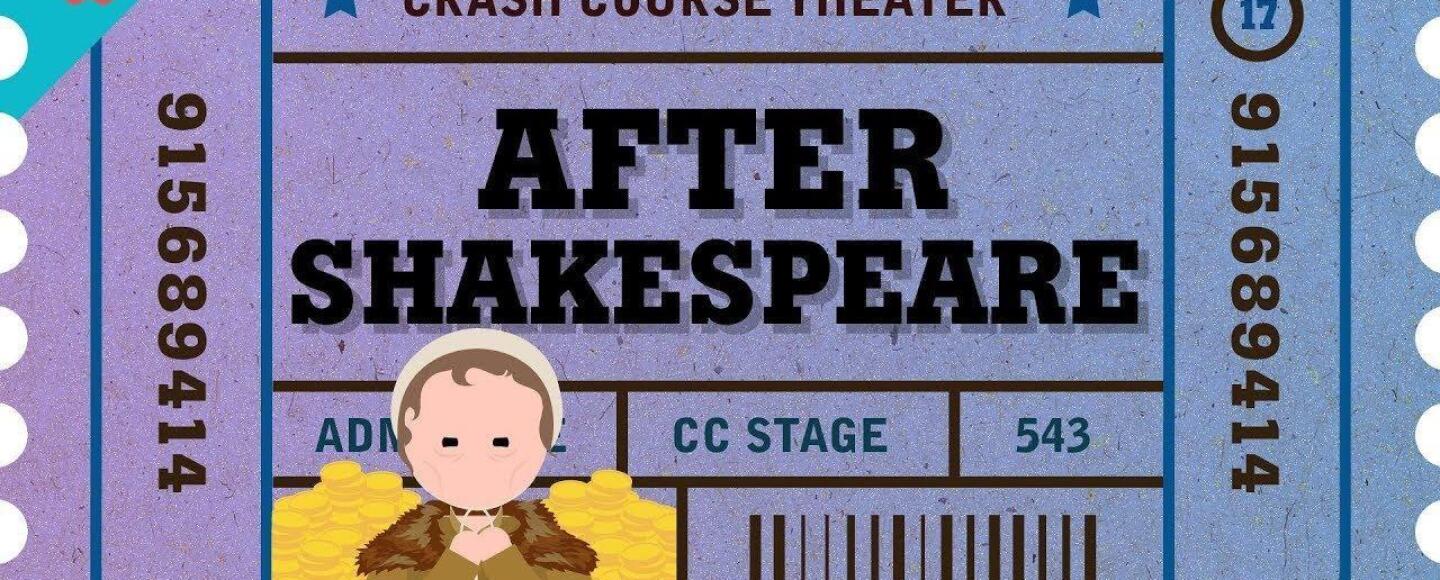Extras
19th century playwrights remade the French theater – first with Realism, then Naturalism.
Episode:
S1
E31
|
12:06
19th century racism contributed to a unique and troubling performance culture in America.
Episode:
S1
E30
|
13:04
Let's discuss wizard theater and the rise of classical Chinese theater and Beijing Opera.
Episode:
S1
E25
|
10:51
Learn about the all-night dance shows in India that culminate in killing a Demon.
Episode:
S1
E24
|
10:13
In the 1600s, English theater had to go into hiding, from PURITANS. Enter: WOMEN.
Episode:
S1
E18
|
12:54
1.What is theater? And 2. Is it spelled -re or -er? The first question is a bit trickier.
Episode:
S1
E1
|
13:35
How did American theater develop after the Revolutionary War?
Episode:
S1
E29
|
12:07
In the 18th century, audiences were ready for some really, really dramatic theater.
Episode:
S1
E28
|
11:34
After Germany was unified, we got Sturm, Drang, Weimar Classicism and Goethe.
Episode:
S1
E27
|
11:09
English Sentimental Comedies weren't that funny, but they were definitely sentimental.
Episode:
S1
E26
|
11:37
Latest Episodes
19th century playwrights remade the French theater – first with Realism, then Naturalism.
Episode:
S1
E31
|
12:06
19th century racism contributed to a unique and troubling performance culture in America.
Episode:
S1
E30
|
13:04
Let's discuss wizard theater and the rise of classical Chinese theater and Beijing Opera.
Episode:
S1
E25
|
10:51
Learn about the all-night dance shows in India that culminate in killing a Demon.
Episode:
S1
E24
|
10:13
In the 1600s, English theater had to go into hiding, from PURITANS. Enter: WOMEN.
Episode:
S1
E18
|
12:54
1.What is theater? And 2. Is it spelled -re or -er? The first question is a bit trickier.
Episode:
S1
E1
|
13:35
How did American theater develop after the Revolutionary War?
Episode:
S1
E29
|
12:07
In the 18th century, audiences were ready for some really, really dramatic theater.
Episode:
S1
E28
|
11:34
After Germany was unified, we got Sturm, Drang, Weimar Classicism and Goethe.
Episode:
S1
E27
|
11:09
English Sentimental Comedies weren't that funny, but they were definitely sentimental.
Episode:
S1
E26
|
11:37












